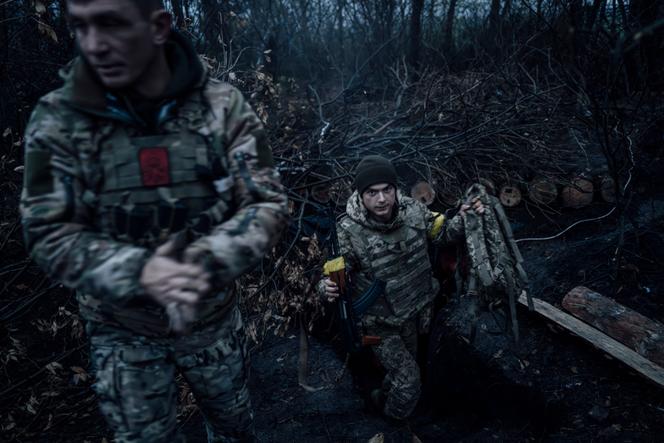


In Brussels on Tuesday, December 3, Ukrainian Foreign Minister Andrii Sybiha showed up with a document in his hands. Invited to the NATO Council of Foreign Ministers, the Ukrainian leader showed the press the "Budapest Memorandum," a text intended to specify the security guarantees Ukraine was to receive from 1994 onward, as part of its accession to the Nuclear Non-Proliferation Treaty.
The United States, the United Kingdom and Russia had pledged to guarantee Ukrainian territorial integrity in exchange for giving up the Soviet nuclear weapons stored on its territory. Thirty years later, with Russia occupying 18% of its territory, this "document failed to secure Ukrainian security and transatlantic security, so we must avoid [repeating] such mistakes," the minister said. From now on, he expects only one thing to ensure his country's long-term security: full membership in the North Atlantic Treaty Organization.
Failing to obtain it in the short term, Kyiv would like to receive a formal "invitation" from the Alliance to eventually join it. Ukrainian leaders are increasingly pressing for this, just a few weeks before Donald Trump takes office as US president. "Ukraine's invitation to join NATO is necessary for our survival," Volodymyr Zelensky said on Sunday, December 1. "If we want to stop the hot phase of the war, we need to take under the NATO umbrella the territory of Ukraine that we have under our control," he told Britain's Sky News two days earlier. "We need to do it fast. And then on the [occupied] territory of Ukraine, Ukraine can get them back in a diplomatic way," he added.
Within the Alliance, while Russia continues its murderous attacks on Ukraine, Trump prepares his return to the White House and Germany is in the midst of an election campaign, the question of an invitation for Kyiv to join the Alliance is not the priority. Ukraine is well aware of this, but insists on obtaining genuine "security guarantees" in the event of a negotiation, guarantees more effective than the Budapest Memorandum, negotiated in the wake of the dismantling of the Soviet Union.
At an informal dinner of allied ministers on Tuesday evening, Lithuanian Foreign Minister Gabrielius Landsbergis said that "no progress has been made." Indeed, the subject continues to give rise to profound differences. With Joe Biden's administration in its final weeks, the US has no intention of acceding to the request, and neither does Chancellor Olaf Scholz's Germany, for whom such a decision would represent an escalation vis-à-vis Russia. Hungary is opposed to this option for as long as the country is at war, as is Turkey, which is open in principle to NATO enlargement, but is calling for Ukraine's borders to be clearly defined before any discussions take place.
You have 56.29% of this article left to read. The rest is for subscribers only.
